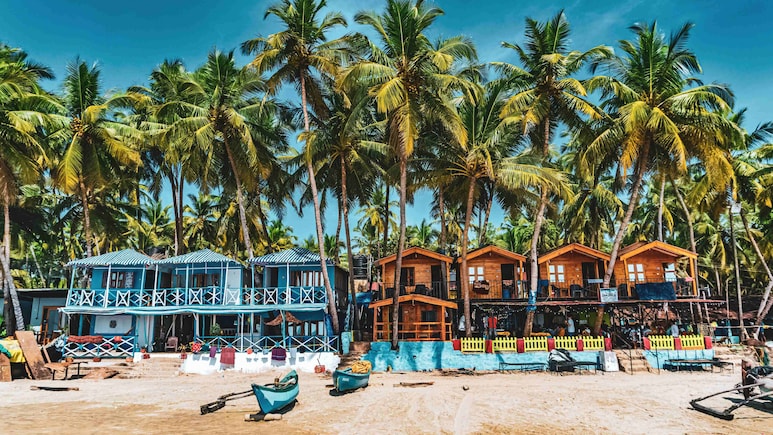
Goa is one of India's most sought-after tourist destinations, but the rise in footfall is coming at a significant cost.
The state is already grappling with overcrowding, pressure on infrastructure and environmental damage and now there's another item on the growing list of concerns: the proliferation of unregistered homestays.
What
"Unregistered homestays being operated from residential units purchased by people from Delhi and other states are being misused for renting out to tourists," said Goa Tourism Minister Rohan Khaunte on Monday, July 28, calling these illegal rentals a serious "concern" for Goa's tourism industry.
The matter was raised in the Legislative Assembly during Zero Hour by BJP MLA Michael Lobo, who represents Calangute. Lobo pointed out that several properties, initially purchased as 'second homes' inside residential complexes during Covid, especially by people in 'Delhi', are now being misused as short-term rentals.
These are not only unregistered but also listed on online platforms, bringing in what he called "unruly" tourists and disrupting the lives of regular residents, according to him.
More Homes Listed Than Legally Registered
According to data shared in the Assembly last year (as reported by Indian Express), only 230 homestays and Bed and Breakfast establishments were officially registered with the Department of Tourism. The number of registered hotels stood at 7,538.
But that's far from the complete picture.
A quick online search revealed over 1,000 homestays currently listed across travel platforms like MakeMyTrip and Airbnb - far more than what is officially accounted for.
Experts and officials believe the ease of listing properties on platforms like Airbnb is a major reason owners are bypassing the registration process altogether.
We Created A Fake Airbnb Listing In Less Than 10 Minutes
So, just how easy is it to become a host on Airbnb? Turns out, absurdly easy. We decided to test it ourselves, and in less than 10 minutes, we were proud (and slightly horrified) owners of a completely fictional listing in Goa.
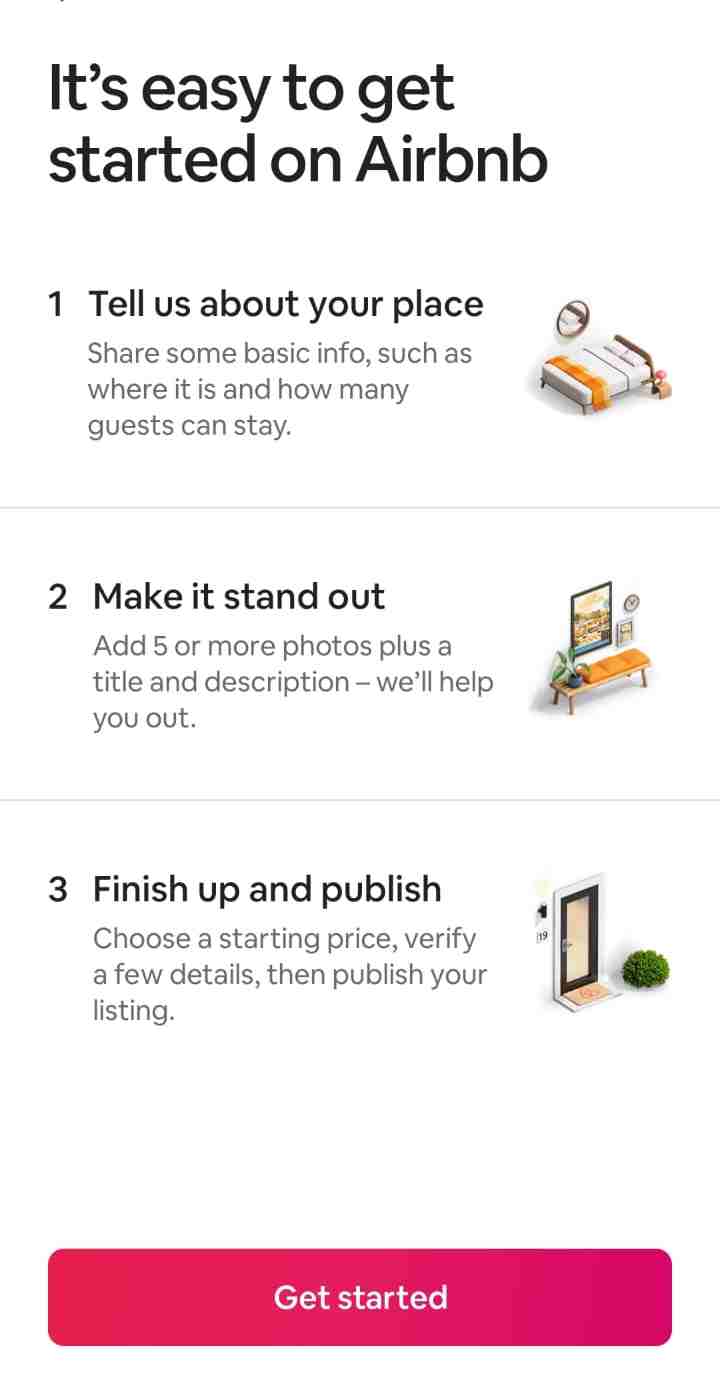
Our imaginary rental? A one-bedroom, three-bathroom villa with a hot tub, the kind of place that screams scam.
After downloading the Airbnb app, we flipped it to 'host mode', signed in with our Gmail, and got to work.
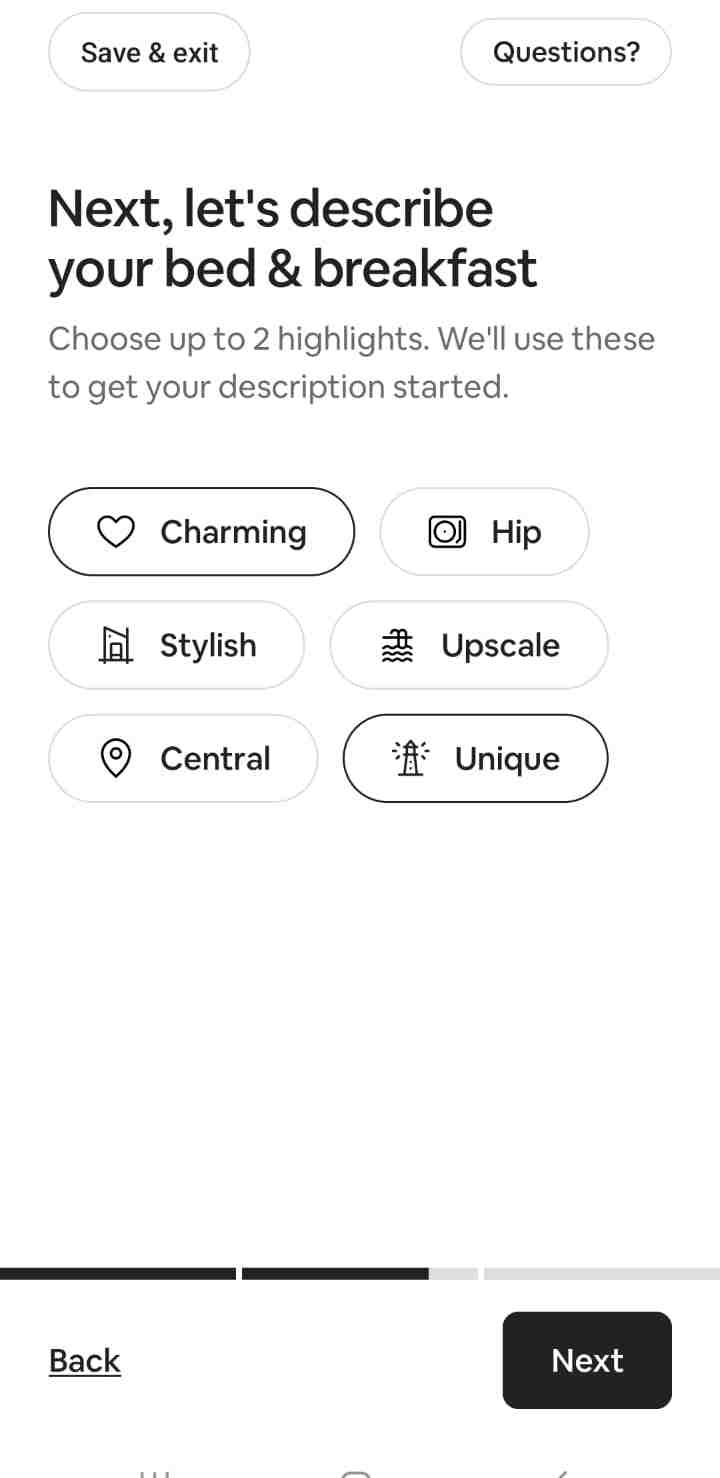
We fed in some completely made-up details, and for location, we chose a quiet corner of Borim in Goa, using Airbnb's own inbuilt map suggestions.
A few taps later, our non-existent room had a pin on the map, and it wasn't even the weirdest part.
We then uploaded a set of wildly unrelated photos, a few skyline shots from Delhi NCR, the ceiling of our office, our laptop, and even a photo of an unrelated hotel property we found online.For verification, the platform asked for a selfie and a government ID. We used our colleague's face and their PAN card, and... it worked.

For our final step, where they asked for our final address, which we added our Noida address, and the property was listed minutes later.
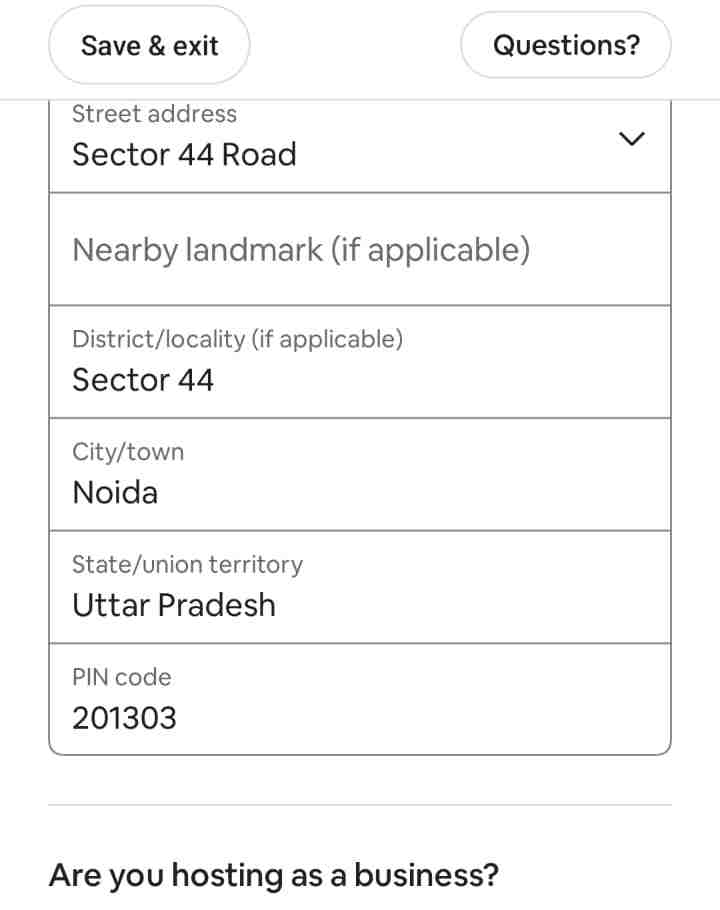
Our final listing address.
We half-expected someone to call for verification, but nope. Within minutes, our questionable listing was live and ready for bookings.
No phone calls. No follow-up. No red flags.
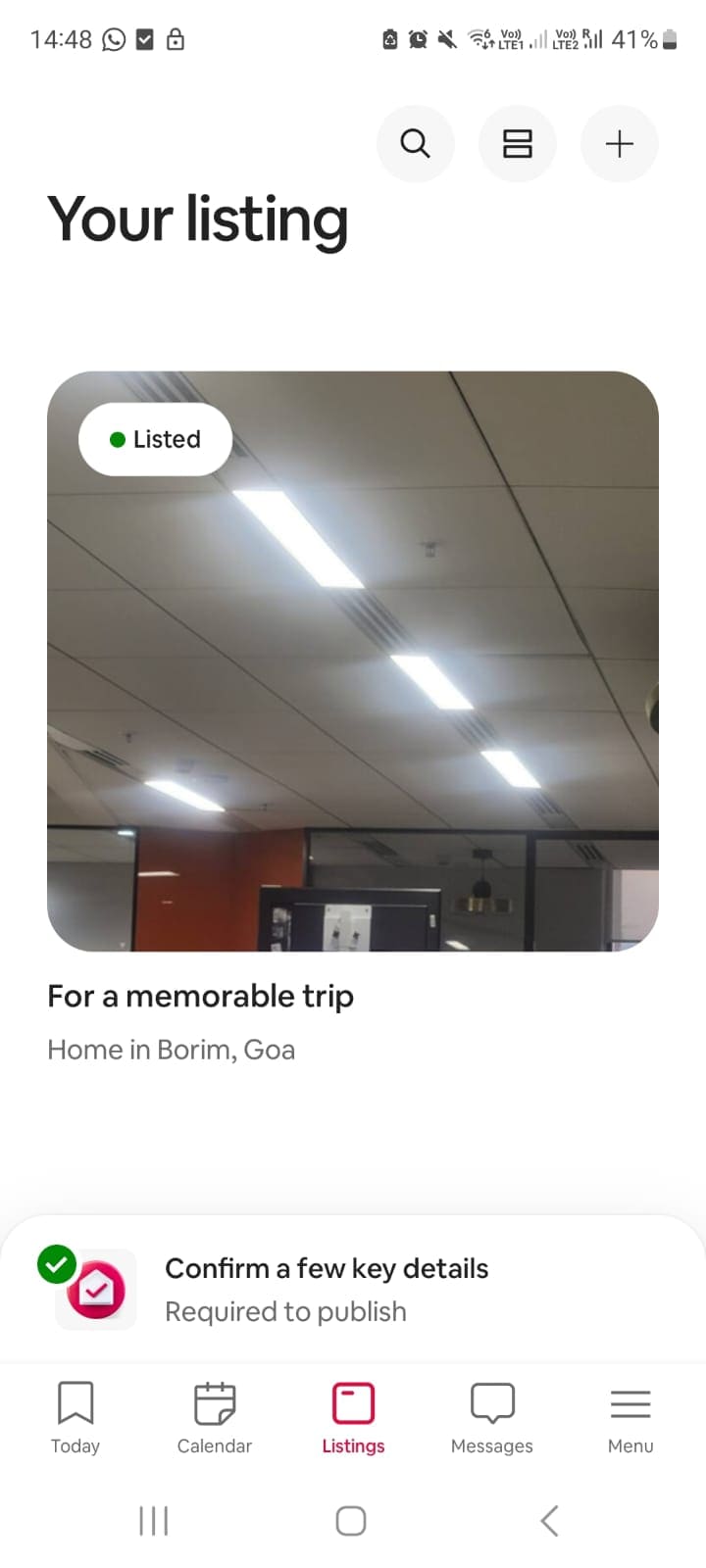
Our listing was live.
If we, with a made-up house and completely bogus documents, could make it on to the platform this easily, it's not hard to see why so many others are skipping the formal registration process.
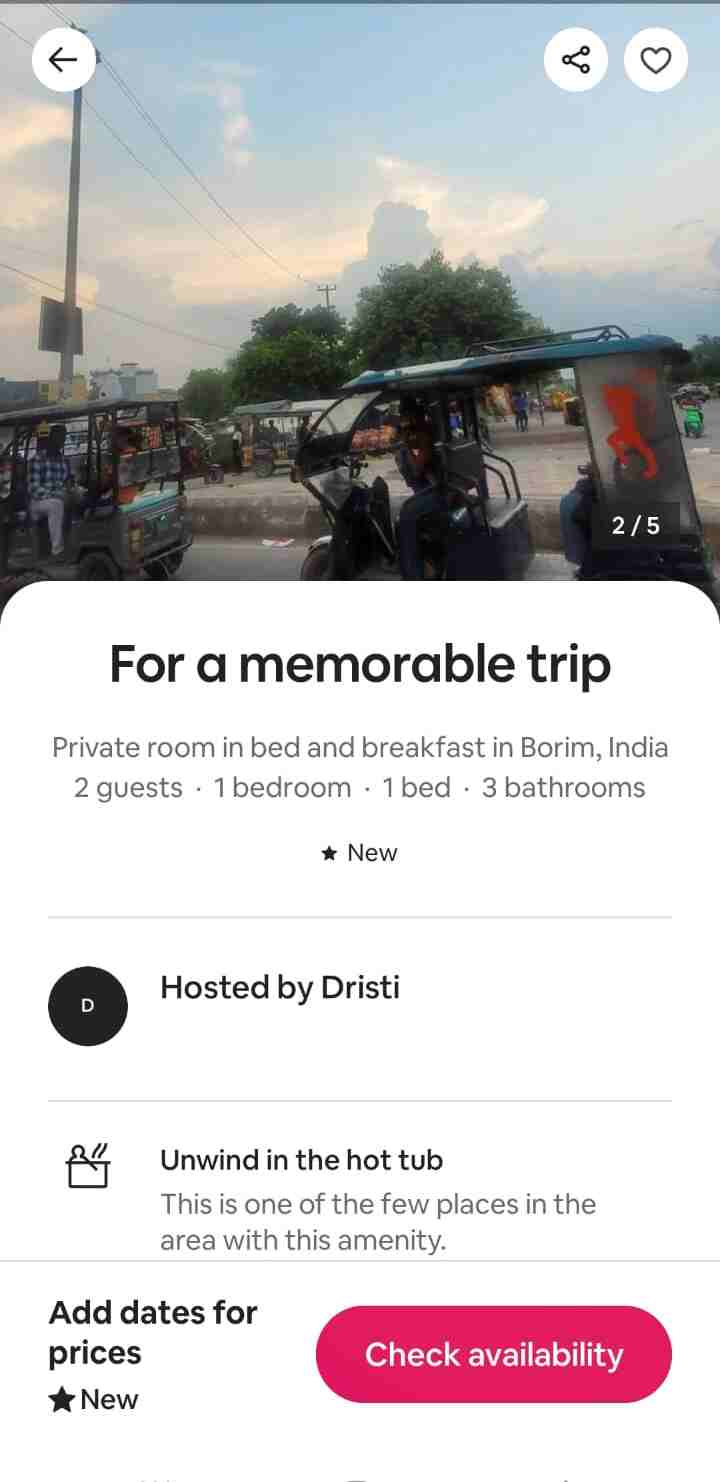
And available for booking!
More worryingly, this opens up the floodgates for scams, with fake hosts, fake properties, and potentially very real victims.
This isn't just a Goan glitch either.
Similar Problems Across The Globe
In Europe, Spain has been wrestling with a similar problem. Cities like Barcelona and Madrid have become cautionary tales, overrun by illegal Airbnb rentals that have pushed out locals, distorted housing markets, and frustrated authorities. This rapid expansion of Airbnb listings has been identified as a leading cause behind soaring rents and a shortage of homes available for local residents.
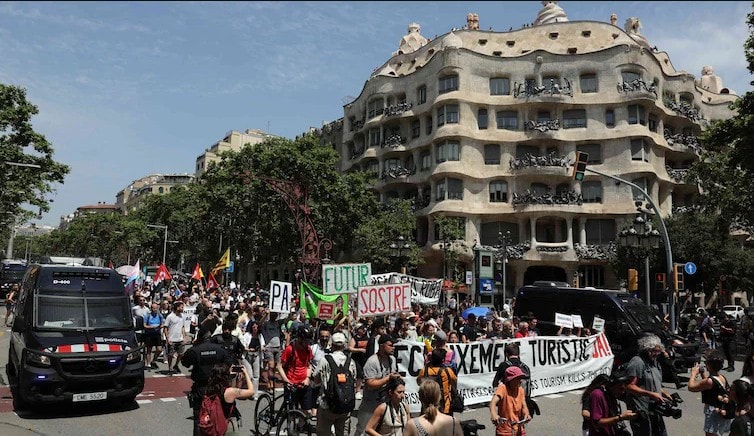
Europe is also struggling with overtourism. Photo: AFP
In response, last month the Spanish Ministry of Social Rights ordered Airbnb to remove nearly 66,000 listings that violated accommodation laws, with immediate effect on thousands and more removals to follow.
Moreover, new rules now require all short-term rental listings to clearly display valid license or registration numbers and clarify their ownership status.
The Next Steps
To tackle the homestay problem, the government will be taking strict action.
BJP MLA Michael Lobo, during the session, urged the government to take firm action against unauthorised homestays and strictly enforce registration norms to safeguard local communities.
According to Tourism Minister Rohan Khaunte, the department is now actively monitoring listings on online platforms and has made it mandatory for all hotels and guest houses to be registered with the department.
"These homes are now being used as rental units for tourists, and we have no data on them. We are losing business to unregulated and unregistered guest houses," Khaunte said.
The government is also encouraging cooperative societies to remain vigilant and report illegal stays via a toll-free number: 1364.
In December 2023, they also introduced the Homestay and Bed and Breakfast Policy that aimed at bringing uniform standards to the sector, ensuring proper registration of properties, and increasing accountability for those operating homestays.
With these proactive steps, Goa hopes to strike a balance, supporting tourism while also protecting the rights of residents and preserving the charm that brings people to the state in the first place. But technology is not making it easier. What lays in the future for tourism in Goa, only time can tell.
For now, if you come across our (fictional) property on Airbnb in Goa, please swipe left.
(NDTV has reached out to Airbnb. The story will be updated once we receive their response.)
READ MORE: What Airbnb Did After I Listed A Goa Rental As A Noida Resident
Track Latest News Live on NDTV.com and get news updates from India and around the world

